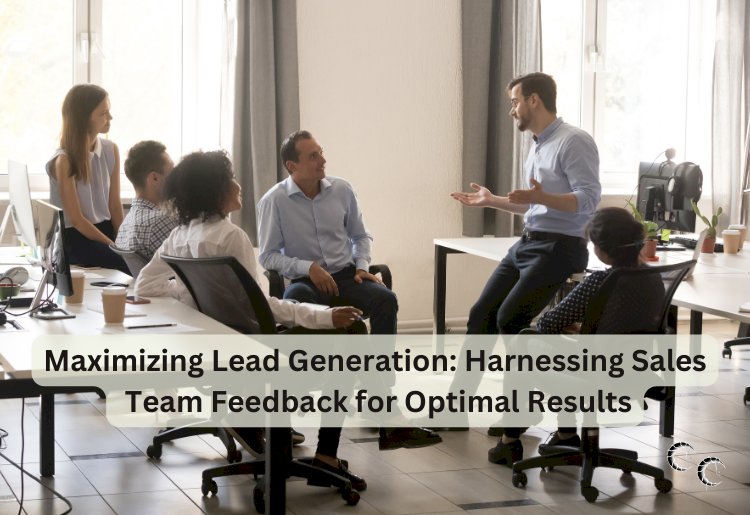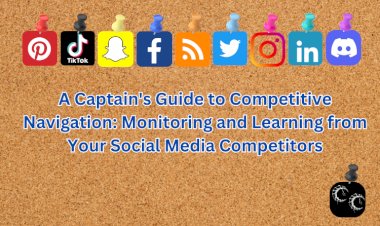Maximizing Lead Generation: Harnessing Sales Team Feedback for Optimal Results

In the realm of business, the synergy between marketing and sales teams is crucial for driving success, particularly in the realm of lead generation. While marketing teams are responsible for attracting and nurturing leads, sales teams are on the frontline, engaging with prospects and converting them into customers. By optimizing lead generation efforts with feedback from sales teams, organizations can streamline their processes, improve conversion rates, and ultimately boost revenue. Here's how you can make it happen:
-
Establish Open Communication Channels: Foster a culture of collaboration between your marketing and sales teams by establishing open communication channels. Encourage regular meetings, feedback sessions, and brainstorming sessions where both teams can share insights, ideas, and feedback. By fostering open communication, you can break down silos and ensure alignment between marketing and sales objectives.
-
Collect Feedback from Sales Teams: Tap into the wealth of knowledge and insights possessed by your sales teams. Encourage them to provide feedback on the quality of leads generated by marketing efforts, including their level of engagement, readiness to buy, and pain points. Gather feedback on the effectiveness of marketing materials, messaging, and tactics in resonating with prospects and driving conversions.
-
Identify Ideal Customer Profiles (ICPs): Work collaboratively with sales teams to define and refine ideal customer profiles (ICPs). By understanding the characteristics, behaviors, and pain points of your target audience, you can better tailor your lead generation efforts to attract and engage high-quality leads that are more likely to convert into customers. Use feedback from sales teams to fine-tune your ICPs and ensure alignment with sales priorities.
-
Align Content and Messaging: Use feedback from sales teams to inform your content creation and messaging strategies. Identify common questions, objections, and pain points raised by prospects during sales conversations, and create content that addresses these concerns. Tailor your messaging to resonate with the needs and priorities of your target audience, and ensure consistency across all marketing channels.
-
Optimize Lead Scoring and Qualification: Leverage feedback from sales teams to refine your lead scoring and qualification criteria. Identify key indicators of prospect readiness and intent to purchase, and adjust your lead scoring models accordingly. Use feedback from sales teams to fine-tune the criteria for identifying sales-ready leads, ensuring that marketing efforts are focused on delivering high-quality leads that are more likely to convert.
-
Implement Closed-Loop Reporting: Establish closed-loop reporting processes to track the progress of leads from initial contact through to conversion. Ensure that leads generated by marketing efforts are effectively handed off to sales teams, and track their journey through the sales pipeline. Gather feedback from sales teams on the quality of leads received, conversion rates, and areas for improvement, and use this data to iterate and optimize your lead generation strategies.
-
Continuous Optimization: Lead generation is an iterative process that requires continuous optimization and refinement. Regularly review performance metrics, gather feedback from sales teams, and identify opportunities for improvement. Test different approaches, tactics, and messaging strategies, and use data-driven insights to inform your decisions. By continuously optimizing your lead generation efforts based on feedback from sales teams, you can drive better results and maximize ROI.
In conclusion, optimizing lead generation efforts with feedback from sales teams is essential for driving success in today's competitive landscape. By fostering open communication, collecting feedback, defining ideal customer profiles, aligning content and messaging, optimizing lead scoring and qualification, implementing closed-loop reporting, and continuously optimizing your strategies, you can maximize the effectiveness of your lead generation efforts and drive business growth. So, harness the power of collaboration between marketing and sales teams, and let feedback be your guide to lead generation success.






























